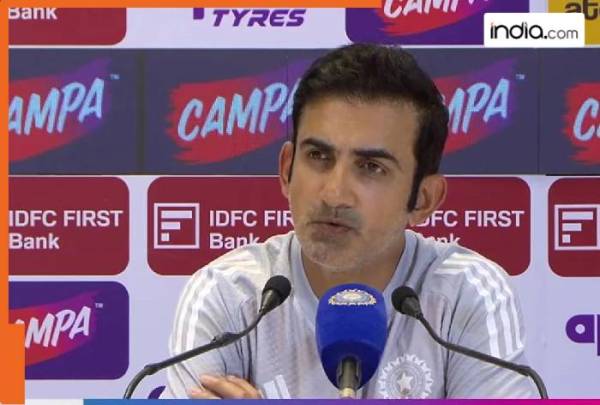
Listen to this article in summarized format
Loading...
×High-net worth investors (HNI) and family offices are now matching global institutional appetite for India's private credit market, which experts say offers well-heeled backers of the asset class an attractive high-yield alternative to volatile equities.
Alternative asset managers, including Edelweiss Alternatives, are increasingly tapping family offices, wealthy Indians or HNIs through wealth platforms for commitment toward private credit, which is a bilaterally negotiated debt market where funds are loaned at significant premiums to public market reference benchmarks.
"As the asset class has matured and Edelweiss funds have entered the fourth vintages, they have seen interest from family offices and HNIs growing in India," said a source. "In their special situation fund raised in March 2024, nearly 50% capital came from domestic markets, while the previous fund-the Fund 2-had only 10% contribution from domestic clients."
India has about 13,000 ultra-high-net-worth families and individuals with wealth above $30 million, a number EY expects would rise to 19,000 by 2028. Increasing domestic reliance on fundraising for this market is aided by regulatory tailwinds in the GIFT City and tax incentives for SEZ structures, helping private credit managers onshore capital raising. By 2027-2030, experts expect Indian family offices to allocate 8%-12% of their investment corpus to direct private credit, up from the currently modest share within their broader exposure to private markets.
Private credit as an asset class was born in the aftermath of the 2008 Global Financial Crisis as banks and other traditional lenders curtailed exposure to specific sectors based on their elevated risk assessment. This market, based on individual negotiations and absence of publicly traded instruments, gives borrowers easier access to capital. Simultaneously, it allows financiers to lock in significantly higher yields than what's offered by the public market, albeit on a higher risk weighting.
Edelweiss Alternatives, which raised a $900 million private credit fund earlier, is working on a larger follow-on fund, expected to exceed $1 billion, people familiar with the matter said.
Mid-Teens RoI
The new fund, experts said, would see performing credit generating 16-18% internal rate of returns (IRR). Its previous fund of $900 million had investment in 17 deals across airports, chemicals and steel. It has exited 12 of those deals, generating returns in mid-teens. By contrast, slightly lower rated Indian companies raise funds in the public debt market at rates ranging from 9-12%.
Edelweiss Alternatives, which had raised its entire performing credit fund of $900 million from global institutional investors earlier, now sees HNIs and family offices financing nearly half of the $1 billion-plus new fund. A 10-15-year track record in successful running of such funds by sponsors has given potential domestic investors-both HNIs and family offices-sufficient confidence in this asset class.
Alternative asset managers, including Edelweiss Alternatives, are increasingly tapping family offices, wealthy Indians or HNIs through wealth platforms for commitment toward private credit, which is a bilaterally negotiated debt market where funds are loaned at significant premiums to public market reference benchmarks.
"As the asset class has matured and Edelweiss funds have entered the fourth vintages, they have seen interest from family offices and HNIs growing in India," said a source. "In their special situation fund raised in March 2024, nearly 50% capital came from domestic markets, while the previous fund-the Fund 2-had only 10% contribution from domestic clients."
India has about 13,000 ultra-high-net-worth families and individuals with wealth above $30 million, a number EY expects would rise to 19,000 by 2028. Increasing domestic reliance on fundraising for this market is aided by regulatory tailwinds in the GIFT City and tax incentives for SEZ structures, helping private credit managers onshore capital raising. By 2027-2030, experts expect Indian family offices to allocate 8%-12% of their investment corpus to direct private credit, up from the currently modest share within their broader exposure to private markets.
Private credit as an asset class was born in the aftermath of the 2008 Global Financial Crisis as banks and other traditional lenders curtailed exposure to specific sectors based on their elevated risk assessment. This market, based on individual negotiations and absence of publicly traded instruments, gives borrowers easier access to capital. Simultaneously, it allows financiers to lock in significantly higher yields than what's offered by the public market, albeit on a higher risk weighting.
Edelweiss Alternatives, which raised a $900 million private credit fund earlier, is working on a larger follow-on fund, expected to exceed $1 billion, people familiar with the matter said.
Mid-Teens RoI
The new fund, experts said, would see performing credit generating 16-18% internal rate of returns (IRR). Its previous fund of $900 million had investment in 17 deals across airports, chemicals and steel. It has exited 12 of those deals, generating returns in mid-teens. By contrast, slightly lower rated Indian companies raise funds in the public debt market at rates ranging from 9-12%.
Edelweiss Alternatives, which had raised its entire performing credit fund of $900 million from global institutional investors earlier, now sees HNIs and family offices financing nearly half of the $1 billion-plus new fund. A 10-15-year track record in successful running of such funds by sponsors has given potential domestic investors-both HNIs and family offices-sufficient confidence in this asset class.





 Subscription
Subscription





